PGy2 PROGRAM
Residency Program Director
-
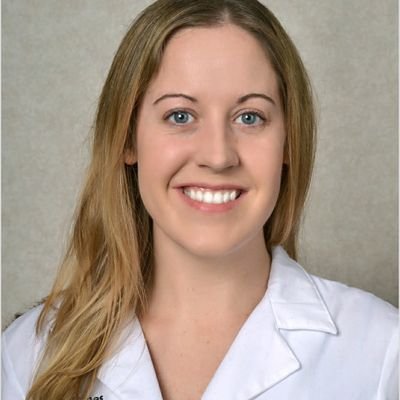
Lynn Wardlow, PharmD, MBA, MS, BCPS, BCIDP, AAHIVP
- Infectious Diseases Residency Program Director
- Specialty Practice Pharmacist, Infectious Diseases
- PGY1 Pharmacy Practice Residency - University of Arizona
- PGY2 Infectious Diseases Residency - University of California-San Diego
Previous Year Residents
-
Bradley Taranto, PharmD
Antimicrobial Stewardship Pharmacist - Mount Carmel East -
Allison Cid, PharmD
OPAT/Antimicrobial Stewardship Pharmacist, FirstHealth Moore Regional Hospital -
Lindsey Groff
Clinical Pharmacy Specialist in Infectious Diseases University Hospital (UT Health San Antonio), San Antonio, TX -
Ashley Lorenz
Pharmacy Clinical Specialist, Infectious Diseases, Cleveland Clinic Fairview -
Amy Parks Taylor
Clinical Pharmacist, Memorial Health University Medical Center, Savannah, Georgia -
Megan Shah
Infectious Diseases Clinical Pharmacist, Atrium Health, Charlotte, North Carolina -
Lauren Hunt
Director, Antimicrobial Stewardship-West at bioMérieux, Inc -
Pavithra Srinivas
Sr MSL, Infectious Diseases & Vaccines, Janssen Pharmaceuticals -
Derek Bremmer
Clinical Pharmacy Specialist - Infectious Diseases / Antimicrobial Stewardship- Allegheny General Hospital
Interested in our PGY2 Infectious Disease Program?
Please sign up for a 1 on 1 discussion to learn more
We are offering 30 minute virtual 1 on 1 discussions to learn more about our PGY2 Infectious Disease Program. Please fill out our survey via the link or QR Code below and someone will reach out to you.
Link: https://osu.az1.qualtrics.com/jfe/form/SV_3jS68TKGhOLU4MS
QR Code:
About the PGY2 Infectious Diseases Residency Program
Residency Sites
The Ohio State University Wexner Medical Center (OSUWMC) is a 1,506 bed tertiary care medical center located in Columbus, Ohio. Hospitals within the health-system are connected and centrally located with the exception of University Hospital East. It is a multi-hospital delivery system recognized in 2023 as one of “America’s Best Hospitals” for excellence in ten specialties by US News and World Report based on quality, outcomes,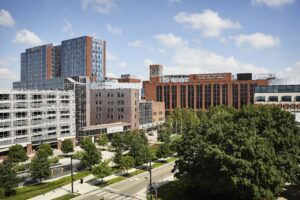 and reputation. We are proud that we have one of the largest antimicrobial stewardship programs in the country and are focused on complete disease state management of patients with an emphasis on the use of rapid diagnostic testing.
and reputation. We are proud that we have one of the largest antimicrobial stewardship programs in the country and are focused on complete disease state management of patients with an emphasis on the use of rapid diagnostic testing.
Read about the sites
University Hospital (UH)
University Hospital (UH) is our flagship hospital with over 900 beds. UH is a major referral center for patients throughout Ohio and the Midwest, and is one of the busiest kidney and pancreas transplant centers in the world. UH is also an international center for neuromodulation research and neurological care. In addition, UH is a level 1 trauma center in addition to being the American Burn Associated verified adult burn center for the region.
The James Cancer Hospital and Solove Research Institute
The OSUCCC – James strives to create a cancer-free world by integrating scientific research with excellence in education and patient-centered care — a strategy that leads to better methods of prevention, detection and treatment. Ohio State is one of 51 National Cancer Institute (NCI)-designated Comprehensive Cancer Centers and one of only a few centers funded by the NCI to conduct both phase I and phase II clinical trials on novel anticancer drugs sponsored by the NCI. As the cancer program’s 356-bed adult patient-care component, The James is one of the top cancer hospitals in the nation as ranked by U.S. News & World Report and has achieved Magnet® designation, the highest honor an organization can receive for quality patient care and professional nursing practice. With 21 floors and more than 1.1 million square feet, The James is a transformational facility that fosters collaboration and integration of cancer research and clinical cancer care.
The Ross Heart Hospital
The Ross Heart Hospital is a leader in cardiology and heart surgery and is the only nationally ranked heart hospital in the area. Each floor of the 150-bed hospital is dedicated to a specific service, which helps us provide specialized care for every patient. The Ross is one of the largest centers for the implantation of LVAD devices in the world in addition to providing heart and lung transplants.
University Hospital East (UHE)
University Hospital East (UHE) blends the friendly atmosphere of a community hospital with the advantages of being a part of a major academic medical center. Located on the eastern edge of downtown Columbus, University Hospital East offers renowned Ohio State services in orthopedic care, emergency services, cancer care, addiction services, ear, nose and throat care, heart care, radiology and imaging services, rehabilitation and wound healing. University Hospital East has a 19 bed mixed medical/surgical ICU.
The Brain and Spine Hospital
The Brain and Spine Hospital opened in the in Fall of 2016 and is a state-of-the-art facility for the advanced management, care and healing of patients with neurological disorders. The hospital consists of 87 private beds and specialized units for stroke and neurovascular, neurotrauma, epilipsy, spine, chronic pain, neuromodulaton, multiple sclerosis, congnitive and movement disorders, as well as an innovative new model for acute spinal cord injuries.
The Department of Pharmacy
The Department of Pharmacy at The OSUWMC is one of the largest in the country. With over 400 employees, and a practice model that includes both clinical pharmacy generalists and clinical pharmacy specialists, our goal is the provision of outstanding, state of the art care. We advise our staff on the best use of medications, develop safeguards for our patients to prevent medication errors and develop transformative pharmacy practice in health-systems. We are guided in this mission by our strategic plan that focuses on five key priorities: optimizing our pharmacy information system, refining our practice model, enhancing our medication safety program, establishing the pharmacy as a workplace of choice in Central Ohio and refining our academic relationships and department scholarship.
Training future generations of pharmacists is a vital part of our mission. Our pharmacists serve as preceptors for our residency programs while providing experiential training for Doctor of Pharmacy (PharmD) students. Our residency program has a 55-year tradition of excellence with our graduates being well-prepared to work at a high-level in a wide-variety of institutional and ambulatory patient care facilities.
The Department of Pharmacy, in partnership with the Ohio State College of Pharmacy, strives to develop the skills of our residents and provide a residency program that is recognized nationally for the quality and excellence of its graduates.
Key rotations/experiences
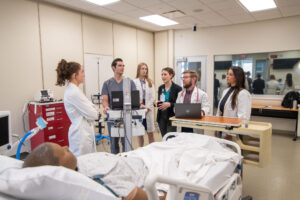 The twelve month residency allows the resident to increase clinical knowledge and skills in infectious diseases through a variety of practice sites, including the Arthur G. James Cancer Hospital and Richard J. Solove Research Institute, one of the nation’s premier centers for the prevention, detection, and treatment of cancer, and the Richard M. Ross Heart Hospital, a national leader in cardiology and heart surgery.
The twelve month residency allows the resident to increase clinical knowledge and skills in infectious diseases through a variety of practice sites, including the Arthur G. James Cancer Hospital and Richard J. Solove Research Institute, one of the nation’s premier centers for the prevention, detection, and treatment of cancer, and the Richard M. Ross Heart Hospital, a national leader in cardiology and heart surgery.
The ID residency program offers the resident the benefit of selecting a unique combination of rotations, including any of six infectious diseases consult services. These services care for diverse patient populations including: internal medicine (medical and surgical), critical care (emergency medicine, medical, surgical, and neuro), cardiovascular, bone marrow transplant, hematology/oncology, and solid organ transplant (heart, lung, liver, kidney, and kidney-pancreas). In addition, the ID resident is an integral member of the Antimicrobial Stewardship Program consisting of ID physicians, pharmacists, microbiologists, infection preventionists, epidemiologists, nurses, and a data manager. The resident will participate in stewardship activities throughout the year, including on-call pharmacy resident MDRO blood culture and antimicrobial approval pager coverage, Antibiotic Subcommittee attendance, and the potential for developing ASP within the Ohio State Health Network.
Required experiences in the following areas:
Learning Experience
|
Duration Per Rotation
|
Orientation
|
1 – 5 weeks
|
Adult General Infectious Disease Consult Service I*
|
4 – 5 weeks
|
Adult General Infectious Diseases Consult Service II*
|
4 – 5 weeks
|
Adult General Infectious Diseases Consult Service III*
|
4 – 5 weeks
|
Adult Immunocompromised Infectious Diseases Consult Service –Solid Organ Transplant*
|
4 – 5 weeks
|
Adult Immunocompromised Infectious Diseases Consult Service – Hematology/Oncology*
|
4 – 5 weeks
|
Clinical Antimicrobial Stewardship*
|
4 – 5 weeks
|
Antimicrobial Stewardship Program Administration*
|
2 – 3 weeks
|
Clinical Microbiology Laboratory*
|
2 – 3 weeks
|
OSU Infectious Diseases HIV Clinic
|
1 year (Longitudinal)
|
Infectious Diseases Clinical Teaching (Precepting)
|
1 year (Longitudinal)
|
Infectious Diseases Didactic Teaching
|
1 year (Longitudinal)
|
Clinical and Operational Staffing
|
1 year (Longitudinal)
|
Infectious Diseases Research
|
1 year (Longitudinal)
|
Quality and Leadership within Infectious Diseases
|
1 year (Longitudinal)
|
Required rotations may be repeated depending on resident interest.
*Denotes a core, required learning experience.
Elective experiences 2-4 weeks in length include, but are not limited to:
Learning Experience |
Duration Per Rotation |
Abdominal Transplant |
2 – 5 weeks |
Adult Immunocompromised Infectious Diseases Consult Service – Hematology/Oncology II* |
2 – 5 weeks |
Burn Service |
2 – 5 weeks |
Clinical Antimicrobial Stewardship II |
2 – 5 weeks |
Critical Care |
2 – 5 weeks |
Emergency Medicine |
2 – 5 weeks |
Hematology |
2 – 5 weeks |
OSU Infectious Diseases HIV Clinic |
2 – 5 weeks |
Internal Medicine |
2 – 5 weeks |
Outpatient Parenteral Antimicrobial Therapy |
2 – 5 weeks |
Pediatric Infectious Diseases |
2 – 5 weeks |
The Ohio State Health Network Antimicrobial Stewardship Outreach Program |
2 – 5 weeks |
Thoracic Transplant |
2 – 5 weeks |
University Hospital East Consult Service I |
2 – 5 weeks |
University Hospital East Consult Service II |
2 – 5 weeks |
Teaching Experience
The resident will serve as a preceptor for PharmD students and PGY1 residents through the layered learning model, assist in facilitating team based learning and presenting didactic lectures at The Ohio State University College of Pharmacy, provide education to other healthcare professionals, and participate in other teaching activities. The resident will have the option to participate in the teaching certificate program in collaboration with the College of Pharmacy.
Natalie Nielsen, PharmD, BCACP, AAHIVP
View Profile
HIV Clinic
Erica Reed, PharmD, MBOE, BCIDP, FIDSA
View Profile
Infectious Diseases/Antimicrobial Stewardship
Jessica Leininger, PharmD, MBA, BCIDP
View Profile
Infectious Diseases/Antimicrobial Stewardship
Lynn Wardlow, PharmD, MBA, MS, BCPS, BCIDP, AAHIVP
View Profile
Infectious Diseases/Antimicrobial Stewardship
Nikki Tran, PharmD, BCIDP
View Profile
Infectious Diseases/Antimicrobial Stewardship
Michael Parisi Mercado, PharmD, MPH, BCIDP, AAHIVP
View Profile
OPAT
selected resident research
The resident will participate in and complete a clinical research project. The resident will work closely with clinicians who have extensive research experience. More information about research-related support offered can be found here. The resident’s major research project will be presented at a select local/regional conference, will be submitted for publication, and may be submitted to a national or international infectious disease conference. The resident may also attend IDWeek or the Making a Difference in Infectious Diseases (MAD-ID) meeting.
- Low-versus high-dose trimethoprim-sulfamethoxazole for the treatment of Stenotrophomonas maltophilia pneumonia. [Manuscript submitted]. -Taranto B, Wardlow LC, Coe K, Bazan JA, Smith JM.
- Impact of concomitant fluconazole on direct oral anticoagulant bleeding risk. Pharmacotherapy. 2022;42(12):880-889. -Cid A, Smetana ME, Hebert C, Coe K, Smith JM.
- Clinical outcomes of combination versus monotherapy for gram negative non-HACEK infective endocarditis. Diag Microbiol Infect Dis. 2021;101(3):115504. –Lorenz A, Sobhanie MM, Orzel L, Coe K, Wardlow L.
- Safety outcomes with high-dose daptomycin in patients with acute kidney injury and/or end-stage renal disease. J Clin Pharm Ther. 2021;46(2):363-368. –Vlashyn OO, Lorenz AM, Sobhanie MM, Smith JM, Bond M, Wardlow L.
- Clinical impact of an antibiotic time out initiative at an academic medical center. Hospital Pharmacy. 2021;56(4):343-346. –Taylor AP, Coe K, Stevenson K, Wardlow L, El Boghdadly Z, Reed E
- Evaluation of cycle threshold, toxin concentration, and clinical characteristics of Clostridioides difficile infection in patients with discordant diagnostic test results. J Clin Microbiol. 2020;58(5):e01681-19.-Shah MD, Balada-Llasat J-M, Coe K, Reed E, Sandlund J, Pancholi P.
- Efficacy of combination therapy versus monotherapy in the treatment of Stenotrophomonas maltophilia pneumonia. J Antimicrob Chemother. 2019;74(1):2055-2059. – Shah MD, Coe KE, El Boghdadly Z, Wardlow LC, Dela-Pena JC, Stevenson KB, Reed EE.
- Community-acquired carbapenem-resistant Serratia marcescens endocarditis: a case report. J Clin Case Rep. 2018;1(2):1011. – Shah MD, Reed EE, Mangino JE.
Benefits and Additional Requirements
This program will be going through the 2024 ASHP Match and participating in virtual interviews. Information about application requirements can be found here.
Application Deadline: January 4, 2024
We welcome applications from non-U.S. citizens who have a “green card” (permanent resident status) or a current visa valid through the entire duration of the residency program. The Ohio State University pharmacy residency programs are NOT able to sponsor visas for pharmacy residents (PGY1 or PGY2).
Start Date: July 1
Annual Salary – $54,000
Vacation Days – 10 days
Project Days – 5 days
Remote ASP Overnight On-Call Requirement – 3 weeks per year
Antimicrobial Approval Pager Requirement – 1 weekend per month (while staffing)
Staffing Requirement – 20 weekends per year
Completion of a Major Research Project and Quality Improvement Initiative
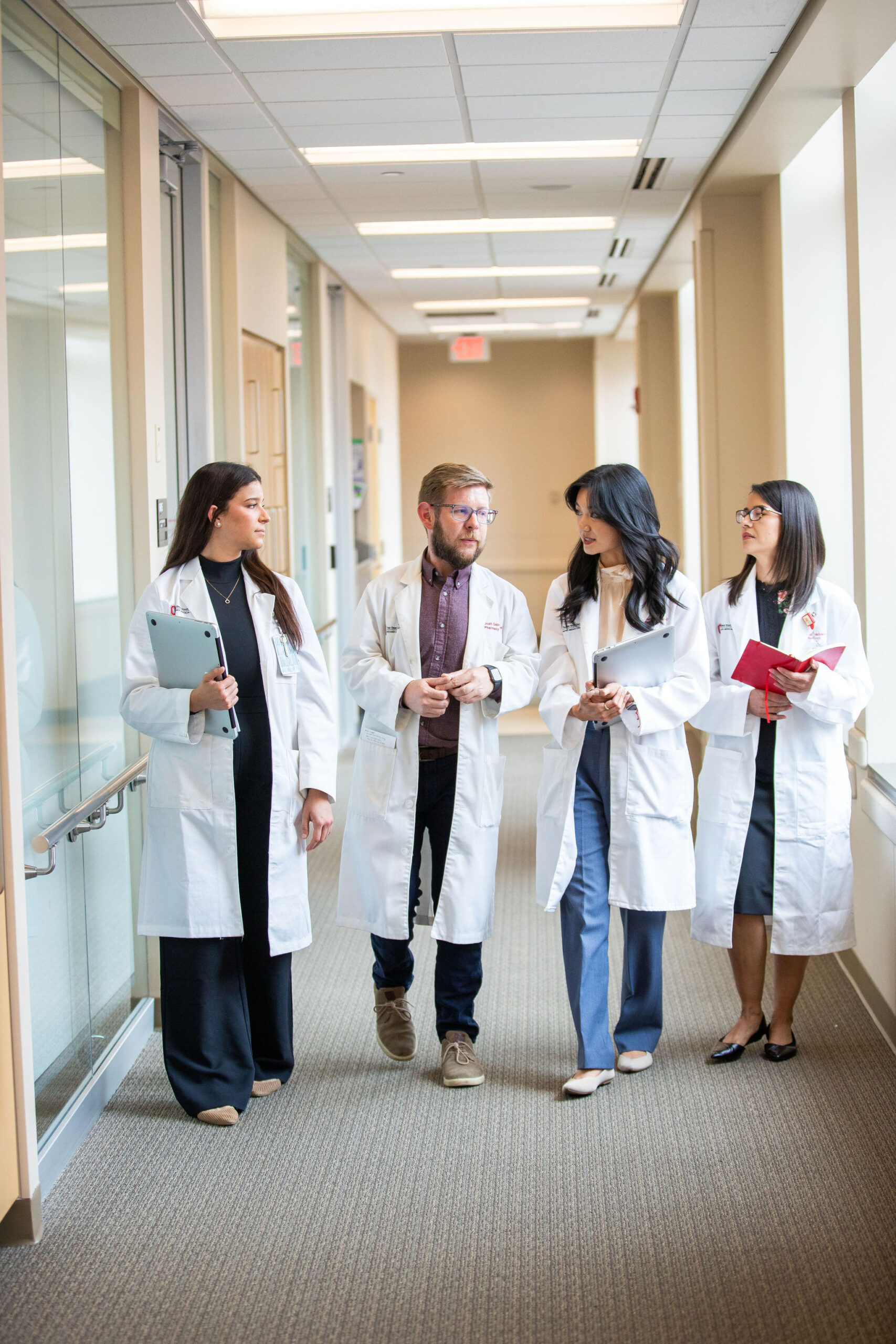
TEACHING OPPORTUNITIES
Residency wellness is supported through the ResiSHINE (Support Health Initiatives and Nurture Excellence) Committee. Additional information can be found here.
Program highlights from the current resident:
“Mentorship provides a unique opportunity for the resident to connect with specialty pharmacists who can share their experiences to help the resident grow throughout the year. Not only does mentorship foster professional growth, but it also supports resident wellness-mentor/mentee outings are a great way to explore the city and take a break from residency.”
-Madeline Droney, 2023-2024 ID Pharmacy Resident

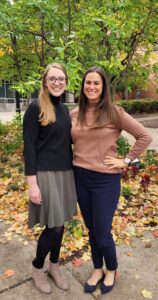

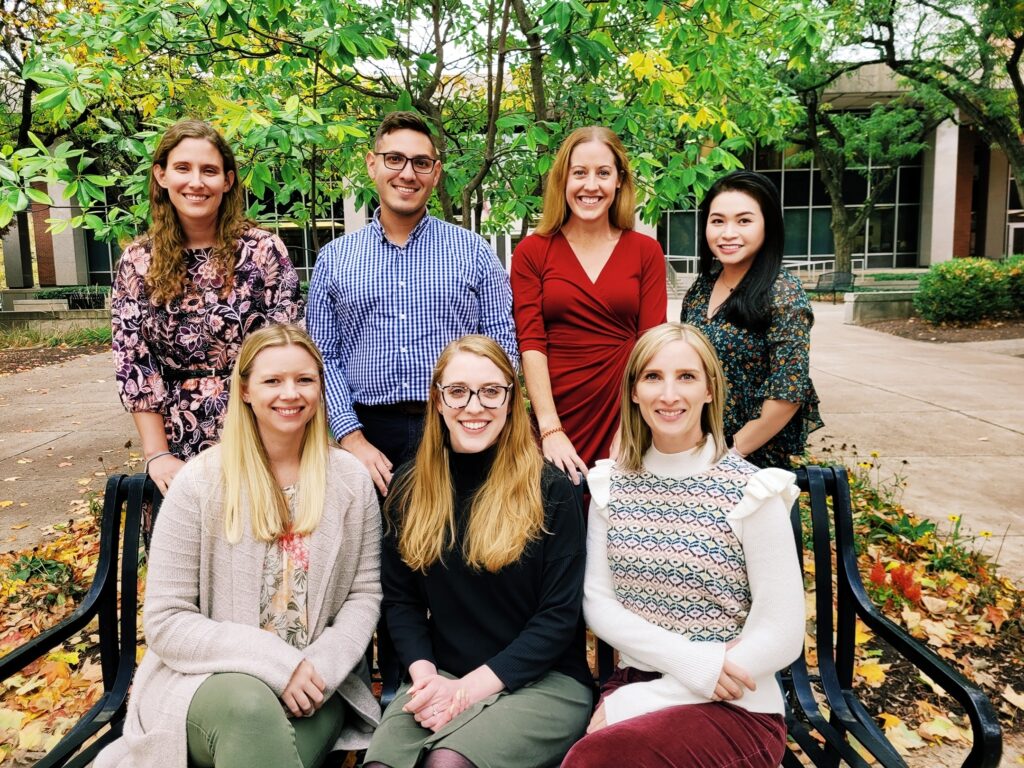
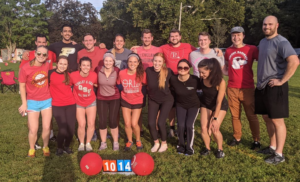

You must be logged in to post a comment.